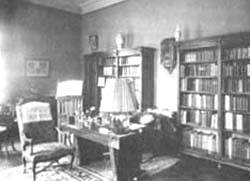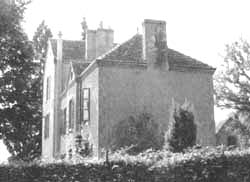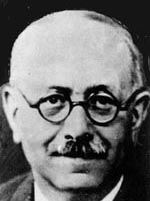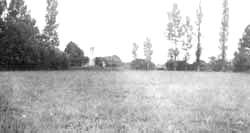Personnes
Marc Bloch
6 July 1886 (Lyon) - 16 June 1944 (Lyon)Marc Bloch, a Jew and a distinguished historian of mediaeval France, was born in Lyon, the son of Gustave Bloch, a professor of ancient history. His first training, as he emphasizes, was under his father. He also studied under Charles Seignobos and others in Paris, then in Leipzig and Berlin. His first teaching posts were in Montpellier and Amiens. He was commended, promoted, and finally awarded the Legion d'Honneur for his military service in WW1. In 1919 he became Professor of Mediaeval History at Strasbourg.
Ten years later, in 1929, together with Lucien Febvre, he founded Annales d'Histoire Economique et Sociale, emphasizing in his own contributions the importance of economic structures and systems of belief in history. This new initiative produced what is called the Annales School of French historiography. In 1936 he became Professor of Economic History at the Sorbonne. His culminating work, Feudal Society (1939), described the legal institutions of feudalism. That same year, at the outbreak of WW2, he rejoined the French Army. Following the surrender of France in 1940, and the division of France into occupied and unoccupied zones (the latter governed from Vichy), Bloch moved his family and his ailing mother Sarah to his country home in Fougères, in Vichy territory.
Vichy began inauspiciously, passing on its own initiative a series of anti-Jewish laws, but permitting a number of exceptions for distinguished persons. Bloch succeeded in gaining one of the ten exceptions granted to Jewish professors on 5 Jan 1941, thus qualifying himself to accept a place on the faculty of the University of Strasbourg, which had in the meantime relocated to Clermont-Ferrand. At the same time, he made an effort to relocate his family to the United States. With Rockefeller Foundation support, he was offered and accepted a two-year appointment at the New School in New York, but the American consulate in Lyon was understaffed for the crisis, and the logistics of securing visas and transit permits for nine persons (reduced to eight with the death of his mother in April 1941, but complicated by the illness of his wife, and the military obligations of two of his sons) eventually proved unsolvable. In May, following entreaties and eventually vituperation from Febvre, he relinquished his official role in the Annales, in order to permit it to continue publication from occupied Paris. His own future contributions (a total of four in 1941) were signed with the pseudonym "Fougères." To avoid subjecting his wife to another winter in Clermont-Ferrand, he managed, on the strength of his previous official exemption from the Jewish Laws, to transfer to the faculty of Montpellier.
It was at this bleak and discouraging time that Bloch worked desultorily on various projects, including his Apologie Pour l'Histoire. It proved impossible to transfer his personal library from Paris to Fougères (his Paris apartment was finally looted by the SS in February 1942), and the University library at Montpellier was an inadequate replacement. Bloch finished his analysis L'Étrange Défaite in August, and continued with the Apologie, working essentially out of his head. His teaching at Montpellier again stimulated his interest in economic history. He visited nearby Narbonne, the site of a flourishing mediaeval Jewish community. In August 1942, the stalled Annales reappeared under the title Mélanges d'Histoire Sociale, the irregular publication period intended to avoid the Vichy and Nazi regulations on periodicals. Conditions in Montpellier worsened, both intellectually and physically (there were shortages of all basic foods). On 7 November 1942 the Allies made their first landings in North Africa. On 11 November, always prompt in reading the strategic situation, the Germans invaded the unoccupied zone of France. Bloch was warned to leave, and did so with most of his family, in two hastily organized convoys to Fougères, leaving behind what remained of his books and being relieved of his position at Montpellier for "desertion in the face of the enemy." The arrest and deportation of French Jews was ordered by Hitler.
At some time toward the end of 1942, Bloch joined the Resistance, which itself had become increasingly unified under the direction of Jean Moulin, and the external symbol of de Gaulle. In these dangerous times, new recruits were strenuously scrutinized, as well they might be, but a contact on the Strasbourg faculty vouched for him, and in early April 1943, Bloch was admitted to Franc-Tireur, leaving this impression on chief editor Georges Altman:
A gentleman of fifty, with a rosette in his buttonhole, a refined face under silver-gray hair, keen eyes behind a pair of spectacles, a briefcase in one hand, a walking stick in the other - at first my visitor was a little stiff, but before long he smiled, held out his hand, and said politely, Yes, I'm Maurice's "colt." (Fink p299-301)
Lyon, capital of the Resistance, once again became Bloch's home. He made occasional visits to his wife and the three youngest children at Fougères, kept up clandestine contacts with English friends, met secretly with Febvre, planned a postwar revolution in French education, contributed anonymously to the Mélanges, and occupied a succession of more or less secure apartments in Lyon. By July 1943, the ostensible businessman "Monsieur Blanchard" had been promoted to replace Pierre Gacon as Franc-Tireur chief for the Rhône-Alpes region and its representative on the three-man regional Resistance directorate. He was put in charge of planning for Resistance response to D-Day (Jour-J). In his residence outside Lyons he received occasional visits from his wife, who also sent him books and food from Fougères. With the Allied landings in Italy in September 1943 came an intense campaign against the Resistance by the Occupation police in collaboration with the Germans. A high-level meeting of the Resistance in Lyons had been planned for 8 March 1944. It was not to occur. Mass arrests of key leaders began on 7 March, and Bloch himself was arrested at noon on the 8th. He was repeatedly interrogated and tortured, but supplied only his real name. In prison, he resumed the role of professor, teaching French history to a cellmate.
As the Allied landings in France drew nearer, the Gestapo began disposing of their mounting number of captives. Some were deported, but many were locally executed. The Allied landings of 6 June 1944 were tapped in code from cell to cell in the prison of Montluc. Shortly afterward Bloch was transferred to a new cell, and on the evening of 16 June he was taken as one of a group of sixteen prisoners to a place called La Roussille, north of Lyon; the sixteen were machined-gunned to death in groups of four. The Germans removed all marks of identification and left the bodies in the field. Local authorities fingerprinted and photographed them, and attempted to identify them. Bloch's wife Simonne found shelter for the two youngest children, and came to Lyon with another daughter to search for him; she died a month later of undiagnosed stomach cancer, without recognizing his picture. After Lyon was liberated by the American army in September, Febvre came from Paris to search for information about Bloch. Finally, in November, his daughter Alice and his sister-in-law Hélène Weill identified his personal effects: his spectacles, and the three French decorations he always wore.
The uncompleted Apologie was edited for publication in 1949 by Febvre as a separate number of the Annales; Bloch's last contribution to the journal he had founded. It was subsequently translated into English as The Historian's Craft. It was meant as an update of the classic work of Langlois et Seignobos - in part an argument with them, and in part a reaffirmation of the standards they had set. Complete or not, it remains one of the 20th century's basic position statements. Part of its power derives from the fact that its principles underlie more than one of the surface factions into which the practitioners of history are fond of dividing themselves. More recently Bloch's son Étienne has re-edited the work from the original manuscripts. Bloch's other highly visible monument is the fact that part of the University of Strasbourg (Université 2) now bears the name Université Marc Bloch: a monument on the professional periphery from which, in his own life, he never quite escaped. His work on feudal society continues to be respected.
Readings
- Marc Bloch. La Société Féodale. A Michel 1939
- Marc Bloch (tr L A Manyon). Feudal Society. 2v Chicago 1961
- Marc Bloch (ed Lucien Febvre). Apologie Pour L'Histoire, ou Métier d'Historien [Cahiers des Annales 3]. Armand Colin 1949
- Marc Bloch (tr Peter Putnam). The Historian's Craft. Knopf 1953
- Marc Bloch (tr J E Anderson). Land and Work in Mediaeval Europe: Selected Papers. Harper 1967
- Carole Fink. Marc Bloch: A Life in History. Cambridge 1989
- Marc Bloch (ed Étienne Bloch). Apologie Pour l'Histoire, ou Métier d'Historien. Armand Colin 1993
- Université Marc Bloch
13 Dec 2005 / Contact The Project / Exit to Reference Page



